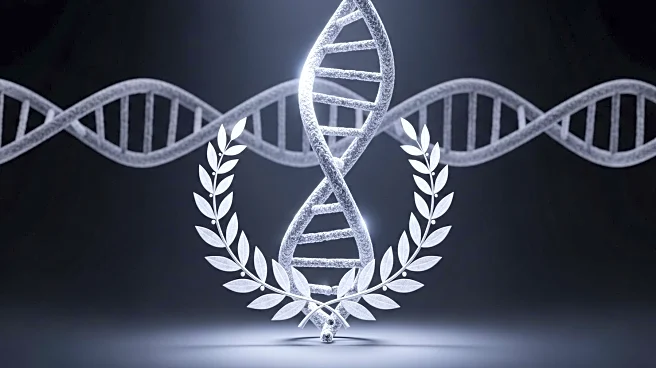What is the story about?
What's Happening?
John Gurdon, a Nobel laureate renowned for his pioneering work in cloning, has died at the age of 92. His death was announced by the University of Cambridge, where he served as a professor of cell biology. Gurdon was the first to clone an animal using DNA from an adult frog, a feat that was previously deemed impossible. His groundbreaking experiments transformed the scientific understanding of DNA and paved the way for the cloning of Dolly the sheep in 1996. Gurdon's work laid the foundation for significant advancements in genetics, including the development of induced pluripotent stem cells, which have revolutionized the study and treatment of genetic diseases.
Why It's Important?
John Gurdon's contributions to science have had a profound impact on genetics and medicine. His work demonstrated that DNA from differentiated cells could be used to create clones, challenging previous beliefs about genetic differentiation. This discovery has led to the development of induced pluripotent stem cells, which are now used to study genetic expression and treat hereditary diseases. Gurdon's research has opened new avenues in medicine, including drug discovery and personalized therapeutics, offering potential benefits for patients with genetic disorders. His legacy continues to influence scientific research and medical practices worldwide.
What's Next?
The scientific community is likely to continue building on John Gurdon's foundational work in genetics and cloning. Research into induced pluripotent stem cells is expected to advance further, potentially leading to new treatments for a variety of diseases. As scientists explore the possibilities of stem cell therapy, ethical considerations regarding cloning and genetic manipulation will remain a topic of discussion. Institutions like the University of Cambridge may honor Gurdon's legacy through continued research and innovation in the field of genetics.
Beyond the Headlines
John Gurdon's work has not only advanced scientific knowledge but also raised ethical questions about cloning and genetic manipulation. While his research has led to significant medical breakthroughs, it has also sparked debates about the potential misuse of cloning technology. The ability to clone animals and potentially humans poses ethical dilemmas that society must address. Gurdon's emphasis on the societal benefits of his work highlights the importance of balancing scientific progress with ethical considerations.
















